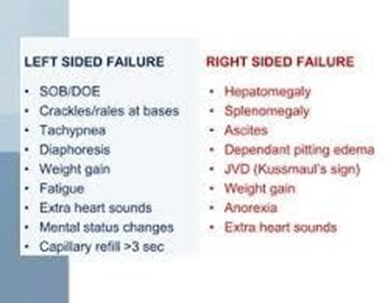A client with bilateral carpal tunnel syndrome reports to the nurse that the pain and tingling experienced worsens at night. Which client teaching should the nurse provide?
Wear braces on both wrists during the night.
Notify the healthcare provider as soon as possible.
Elevate the hands on two pillows at night.
Apply cold compresses for 30 minutes before bedtime.
The Correct Answer is A
A. Wearing braces on both wrists during the night can help maintain a neutral wrist position and alleviate pressure on the median nerve, reducing symptoms of carpal tunnel syndrome.

B. Notifying the healthcare provider may be necessary if symptoms worsen or if additional interventions are needed, but this is not the first-line intervention for managing symptoms at night.
C. Elevating the hands on two pillows at night may provide some relief, but it is not as effective as wearing wrist braces to maintain proper alignment and reduce pressure on the median nerve.
D. Applying cold compresses before bedtime may help reduce inflammation but is not specifically targeted at alleviating nighttime symptoms of carpal tunnel syndrome.
Nursing Test Bank
Naxlex Comprehensive Predictor Exams
Related Questions
Correct Answer is D
Explanation
A. Asking about the effectiveness of antifungal creams is not relevant to herpes zoster, which is caused by the varicella-zoster virus.
B. Inquiring about family members sharing combs and brushes is not directly related to herpes zoster, as it is not transmitted through sharing personal items.
C. Asking about dry patches on the feet and hands may provide information about other dermatological conditions but does not specifically address herpes zoster.
D. Asking whether everyone at home has already had varicella is important because herpes zoster, commonly known as shingles, is caused by reactivation of the
varicella-zoster virus, which also causes chickenpox (varicella). Individuals who have not had chickenpox or been vaccinated against it may be at risk of developing chickenpox if exposed to herpes zoster lesions.
Correct Answer is B
Explanation
A. Internal bleeding may present with symptoms such as hypotension, tachycardia, and signs of blood loss, but it typically does not cause pitting edema or jugular venous distention.
B. Right-sided heart failure can cause systemic venous congestion, leading to pitting edema of the lower extremities and jugular venous distention due to increased central venous pressure.

C. Cardiac tamponade presents with Beck's triad (hypotension, distended neck veins, muffled heart sounds) and is typically more acute in onset compared to the gradual development of symptoms seen in right-sided heart failure.
D. Left ventricular dysfunction primarily causes symptoms of pulmonary congestion, such as dyspnea, orthopnea, and crackles, rather than pitting edema and jugular venous distention.
Whether you are a student looking to ace your exams or a practicing nurse seeking to enhance your expertise , our nursing education contents will empower you with the confidence and competence to make a difference in the lives of patients and become a respected leader in the healthcare field.
Visit Naxlex, invest in your future and unlock endless possibilities with our unparalleled nursing education contents today
Report Wrong Answer on the Current Question
Do you disagree with the answer? If yes, what is your expected answer? Explain.
Kindly be descriptive with the issue you are facing.
